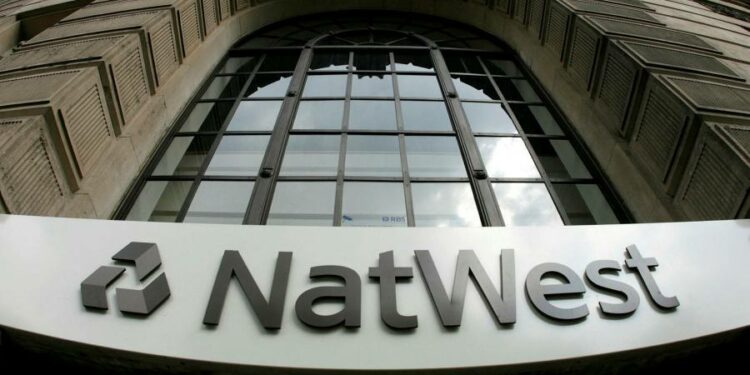NatWest has agreed to pay US authorities about $35m after pleading guilty to conducting fraud schemes in the US Treasury bond and futures markets.
The UK bank on Tuesday pleaded guilty to one count of wire fraud and one count of securities fraud in a US federal district court in Connecticut. As part of its criminal conviction, NatWest agreed to work with an independent compliance monitor and to a three-year probation period.
Traders at NatWest, known until last year as Royal Bank of Scotland, participated in fraudulent trading that caused nearly $7m in losses to market participants, according to court documents. In London and Connecticut the schemes took place in Treasury futures between January 2008 and May 2014. Two more traders in Singapore engaged in similar activity linked to cash US Treasury bonds in 2018, the US Department of Justice said.
The wrongdoing in 2018 marked a “material breach” of a non-prosecution agreement that a US broker subsidiary had reached in 2017 in which it admitted defrauding customers in mortgage-backed securities and collateralised loan obligations, according to the justice department. The bank in 2018 was also on probation after pleading guilty in 2015 for conspiring to manipulate the foreign exchange market, the DoJ said.
“Today’s announcement . . . should be no surprise,” Lisa Monaco, US deputy attorney-general, told the Financial Times, adding Tuesday’s move showed the DoJ was “living up to [its] commitments to hold corporations accountable”.
Entering into prosecution agreements “will not be a free pass”, she said. The bank, she added, had disclosed “some . . but not complete information” about misconduct.
The justice department last month told the Financial Times that it was preparing to launch a crackdown on wrongdoing by companies. One potential target was companies that had violated the terms of deferred prosecution agreements, John Carlin, a senior official working on the department’s effort, said at the time.
Robert Begbie, chief executive of NatWest Markets, said: “We deeply regret the past behaviour of a small number of former employees which has led to today’s guilty plea and the agreement with the United States Department of Justice and [the US Attorney’s Office for the District of Connecticut] and are pleased to resolve this matter.”
The DoJ said the traders sought to profit from generating misleading information on supply and demand in the Treasury markets via “spoof orders” placed with the aim of being cancelled before they were fulfilled.
“The spoof orders were designed to artificially push up or down the prevailing market price so that the NatWest traders could trade more profitably as a result of these schemes,” the department said.
According to court documents, a trader in London in 2011 admitted to a colleague via electronic chat that he was spoofing, adding: “i was doing lot of that last week & was saying myself, gonna get caught soon, should stop.”
The bank ultimately fired the traders in Singapore following an internal review triggered by a market participant lamenting trading activity in the cash market during Asia hours, according to court documents.
In a call discussing the complaint, a supervisor told one of the traders: “In a Darwinian sense I don’t have any issue with it [providing fake market signals] . . . if they cut us off because of your activity . . . then I do have a problem with it”. The supervisor later advised the trader on how to hide what authorities called “his fraudulent scheme”, according to court documents.
The bank’s plea comes days after it faced legal action in the UK. Last week, NatWest Markets’ parent group paid a £264.8m fine for breaching anti-money laundering regulations between November 2012 and June 2016 and received a criminal conviction. The bank remains majority owned by the UK government 13 years after RBS was taken over during the financial crisis.
Biden administration officials have pledged a rigorous approach to corporate malfeasance. US authorities earlier this month notified Deutsche Bank it may have violated a criminal settlement after the German lender failed to alert the DoJ about an internal complaint at its asset management division.











